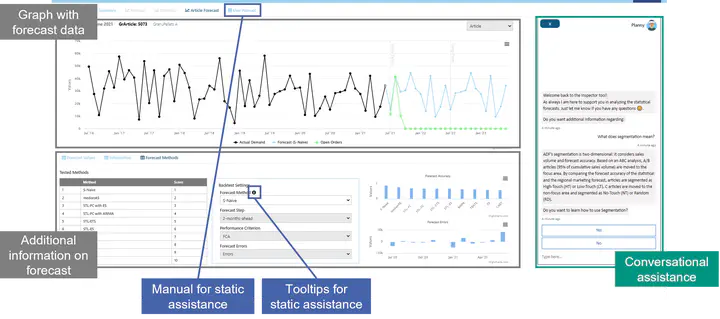The Impact of Conversational Assistance on the Effective Use of Forecasting Support Systems: A Framed Field Experiment

Abstract
Forecasting support systems (FSSs) support demand planners in important forecasting decisions by offering statistical forecasts. However, planners often rely on their judgment more than on system-based advice which can be detrimental to forecast accuracy. This is caused by a lack of understanding and subsequent lack of trust in the FSS and its advice. To address this problem, we explore the potential of extending the traditional static assistance (e.g., manuals, tooltips) with conversational assistance provided by a conversational assistant that answers planners’ questions. Drawing on the theory of effective use, we aim to conduct a framed field experiment to investigate whether conversational (vs. static) assistance better supports planners in learning the FSS, increases their trust, and ultimately helps them make more accurate forecasting decisions. With our findings, we aim to contribute to research on FSS design and the body of knowledge on the theory of effective use.